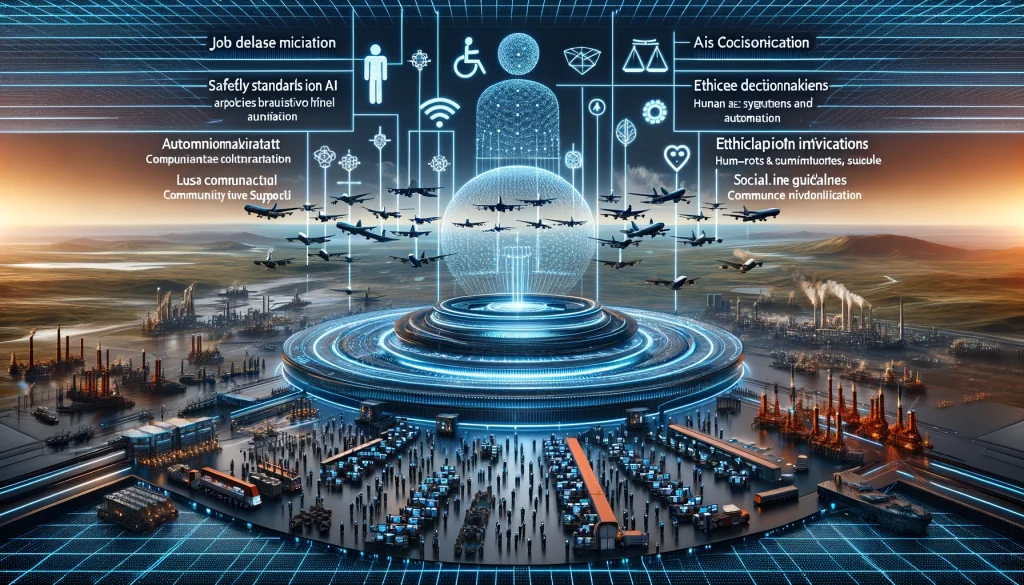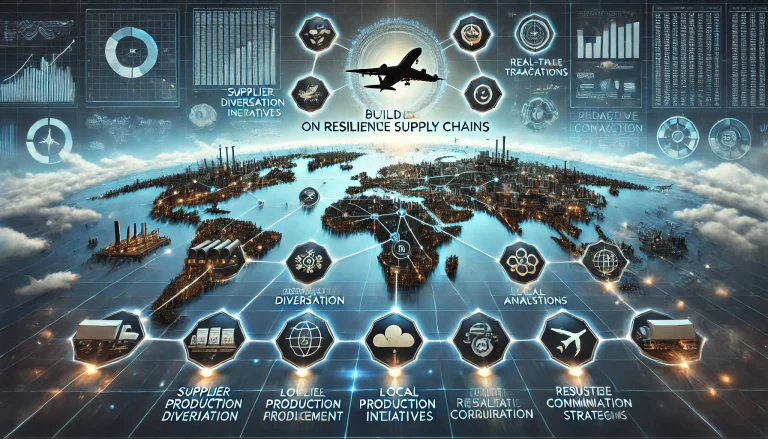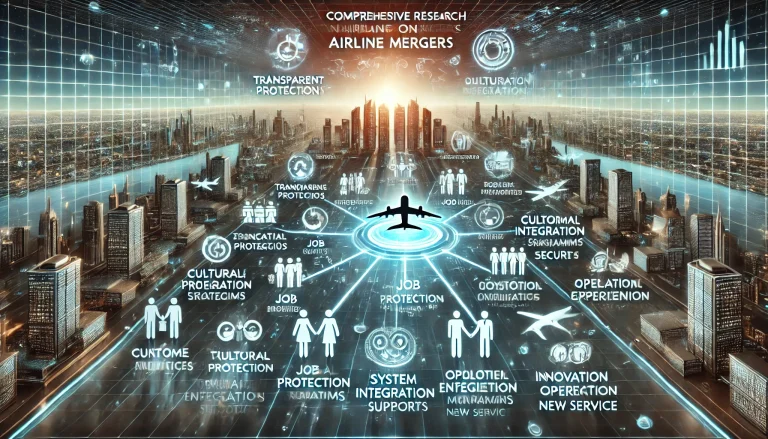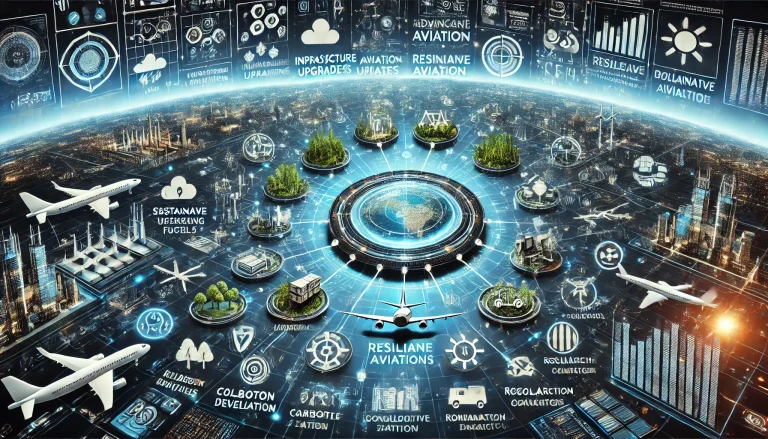Problem Statement
The integration of artificial intelligence (AI) and automation in aviation is transforming the industry, bringing about significant advancements in flight operations, maintenance, and customer service. However, as these technologies become more deeply embedded in daily operations, they also raise a number of ethical dilemmas and challenges that the industry must address.
One of the most pressing concerns is the potential for job displacement. As automated systems take over tasks traditionally performed by humans, such as aircraft maintenance, flight operations, and customer service, there is a risk that many jobs will become obsolete. This shift could lead to significant workforce reductions, raising questions about the social responsibility of airlines and the broader impact on communities that rely on aviation jobs.
Safety is another critical concern. While AI and automation can enhance safety by reducing human error, they also introduce new risks. Automated systems may fail or behave unpredictably, and in some cases, may lack the nuance and judgment that human operators bring to critical situations. The potential for AI-driven systems to make decisions without human intervention raises questions about accountability and the reliability of these technologies in ensuring passenger safety.
The ethical implications of machines making critical decisions, particularly in life-or-death situations, are also a major concern. Automated systems are increasingly being used in decision-making processes, from flight path optimization to emergency response protocols. However, the lack of transparency in how these systems make decisions, coupled with the potential for biases in AI algorithms, raises questions about the fairness and morality of relying on machines for such important tasks.
Addressing these challenges requires a careful balance between embracing technological advancements and ensuring that the human element remains central to aviation operations. The industry must develop robust ethical guidelines for the use of AI and automation, invest in retraining and upskilling programs for displaced workers, and ensure that automated systems are transparent, accountable, and subject to rigorous safety standards.
Pain Points
- Job Displacement: The risk of significant workforce reductions as AI and automation take over tasks traditionally performed by humans.
- Safety Concerns: The potential for automated systems to fail or behave unpredictably, raising questions about their reliability in critical situations.
- Decision-Making Ethics: The ethical implications of machines making critical decisions, particularly in life-or-death scenarios.
- Accountability: Challenges in determining accountability when automated systems make errors or cause accidents.
- Bias in AI Algorithms: The potential for biases in AI-driven systems to lead to unfair or unethical outcomes.
- Transparency Issues: Lack of transparency in how AI systems make decisions, leading to concerns about fairness and trust.
- Social Responsibility: The broader impact of job displacement on communities and the ethical responsibility of airlines to support affected workers.
- Human-Machine Collaboration: Balancing the roles of humans and machines in aviation operations to ensure safety and efficiency.
- Ethical Guidelines: The need for clear and robust ethical guidelines for the use of AI and automation in aviation.
- Public Perception: Concerns about how the increasing reliance on automation might affect public trust in the aviation industry.
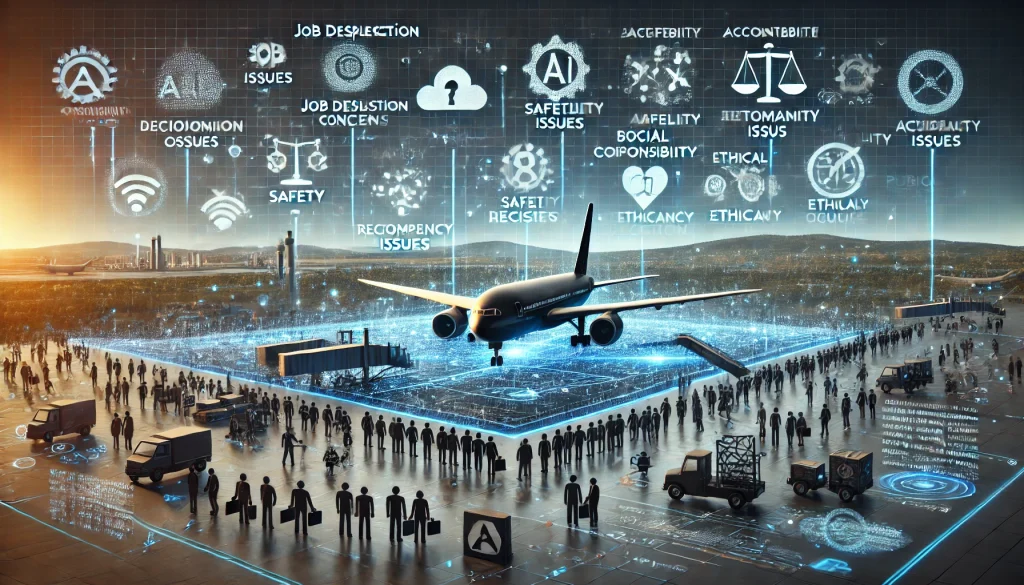
Future Vision
Our platform envisions a future where AI and automation in aviation are implemented in a way that enhances safety, efficiency, and customer experience while addressing the ethical challenges that accompany these technologies. To achieve this, the platform will advocate for the development of robust ethical guidelines that govern the use of AI and automation in aviation, ensuring that these technologies are used responsibly and transparently.
One key focus will be on minimizing job displacement by investing in retraining and upskilling programs for workers affected by automation. Airlines can leverage AI and automation to complement human workers rather than replace them, enabling a collaborative approach where technology enhances human capabilities. This approach not only preserves jobs but also ensures that the human element remains central to aviation operations.
Safety will be a top priority, with the platform supporting the development of rigorous safety standards for automated systems. This includes thorough testing and validation processes, real-time monitoring of AI systems, and the integration of fail-safes that allow for human intervention in critical situations. Transparency in AI decision-making will be emphasized, ensuring that passengers, regulators, and airline staff understand how automated systems operate and make decisions.
The platform will also address the ethical implications of machines making critical decisions by promoting the development of AI systems that are free from biases and capable of making fair and ethical choices. This involves continuous monitoring and refinement of AI algorithms to prevent discriminatory outcomes and ensure that decisions align with ethical principles.
Public perception and trust in AI and automation will be cultivated through transparent communication about the benefits and risks of these technologies. Airlines will be encouraged to engage with passengers and the broader public to build understanding and confidence in the role of AI in aviation.
By addressing these challenges and prioritizing ethical considerations, our platform aims to create a future where AI and automation are seamlessly integrated into aviation, enhancing safety, efficiency, and customer satisfaction while preserving the essential human element.
Use Cases
- Job Displacement Mitigation: Implementing retraining and upskilling programs for workers affected by automation in aviation.
- Safety Standards for AI Systems: Developing and enforcing rigorous safety standards for the use of AI in flight operations, maintenance, and customer service.
- Ethical Decision-Making: Designing AI systems that make fair, transparent, and ethical decisions in aviation scenarios.
- Human-AI Collaboration: Promoting a collaborative approach where AI and automation complement human workers rather than replace them.
- Transparency Initiatives: Ensuring that AI systems in aviation are transparent in their decision-making processes and operations.
- Bias Prevention in AI: Monitoring and refining AI algorithms to prevent biases and ensure ethical outcomes in decision-making.
- Ethical Guidelines Development: Creating comprehensive ethical guidelines for the use of AI and automation in aviation.
- Public Communication: Engaging with passengers and the public to build trust and understanding of AI’s role in aviation.
- Real-Time Monitoring of AI Systems: Implementing systems that monitor AI operations in real-time to ensure safety and allow for human intervention.
- Social Responsibility Initiatives: Supporting communities affected by job displacement through social responsibility programs and initiatives.
Target Users and Stakeholders
- User: Airline Executives, IT Security Teams, Compliance Managers, Operations Managers, and Human Resources Teams
- Age Group: 30-60 years
- Gender: M/F
- Usage Pattern: Regular usage for developing ethical AI practices, managing job displacement, and ensuring safety and transparency in aviation operations
- Benefit: Enhanced safety, ethical decision-making, and responsible integration of AI in aviation
- Stakeholders:
- Airlines: Companies that need to integrate AI and automation responsibly while addressing ethical challenges and maintaining safety.
- Regulatory Bodies: Agencies overseeing the implementation of AI and automation in aviation, ensuring compliance with safety and ethical standards.
- Employees: Workers in the aviation industry who may be affected by automation and AI-driven job displacement.
- Passengers: Individuals who expect safe, reliable, and ethically sound services from airlines.
- Technology Providers: Companies developing AI and automation solutions for the aviation industry.
- Public Interest Groups: Organizations advocating for ethical practices in AI and automation, particularly regarding job displacement and safety.
Key Competition
- Boeing: Leading in the development of AI and automation technologies for flight operations, maintenance, and safety systems.
- Airbus: Innovating in AI-driven flight optimization, predictive maintenance, and autonomous systems for aviation.
- Honeywell Aerospace: Providing advanced AI and automation solutions for flight operations, safety, and efficiency.
- GE Aviation: Focusing on AI-powered predictive maintenance, flight path optimization, and safety systems.
- Thales Group: Specializing in AI and automation technologies for flight control, safety systems, and aviation cybersecurity.
Products/Services
- Boeing AI-Driven Flight Systems: Developing AI and automation technologies for enhanced flight operations and safety.
- Airbus Predictive Maintenance: Using AI to predict and prevent maintenance issues before they occur, improving safety and efficiency.
- Honeywell Aerospace AI Solutions: Offering AI-powered flight optimization, safety systems, and automation technologies for aviation.
- GE Aviation Predictive Analytics: Leveraging AI to optimize flight paths, reduce fuel consumption, and enhance safety.
- Thales Group Autonomous Systems: Innovating in AI-driven flight control systems, cybersecurity, and safety technologies for aviation.
Active Startups
- Skydweller: Developing solar-powered autonomous aircraft with advanced AI systems for long-endurance flight operations.
- Xwing: Specializes in autonomous flight technology for regional air cargo operations, using AI to enhance safety and efficiency.
- Reliable Robotics: Focused on developing autonomous flight systems for commercial aviation, with a strong emphasis on safety.
- Daedalean: Innovating in AI-driven avionics systems that enhance flight safety and enable autonomous flight capabilities.
- SparkCognition: Provides AI-powered solutions for predictive maintenance, flight safety, and operational efficiency in aviation.
- Volocopter: Pioneering urban air mobility with autonomous air taxi services, leveraging AI for safe and efficient operations.
- Universal Hydrogen: Using AI to optimize hydrogen fuel logistics and reduce the environmental impact of aviation.
- Skyryse: Developing flight automation systems that make flying safer and more accessible, using advanced AI technologies.
- Near Earth Autonomy: Focused on autonomous flight technologies for drones and aircraft, using AI for navigation and safety.
- H3 Dynamics: Specializes in AI-powered autonomous flight systems for drones and urban air mobility applications.
Ongoing Work in Related Areas
- AI Safety Research: Exploring new approaches to ensure the safety and reliability of AI and automation in aviation.
- Ethical AI Frameworks: Developing frameworks and guidelines for the ethical use of AI in aviation, particularly in decision-making and job displacement.
- Human-AI Collaboration Studies: Researching best practices for integrating AI into aviation operations while maintaining a strong human element.
- Public Trust and AI: Innovating in public communication strategies to build trust and understanding of AI’s role in aviation.
- Bias Detection in AI: Advancing methods to detect and prevent biases in AI algorithms used in aviation decision-making.
Recent Investment
- Skydweller: $32M in Series A funding led by Leonardo and Aditya Birla, June 2020.
- Xwing: $40M in Series B funding led by Blackhorn Ventures, April 2021.
- Reliable Robotics: $100M in Series C funding led by Coatue Management, October 2021.
- Daedalean: $12M in Series A funding led by Carthona Capital, March 2020.
- SparkCognition: $123M in Series D funding led by March Capital, October 2021.
Market Maturity
The market for AI and automation in aviation is rapidly maturing, driven by the need for increased safety, efficiency, and operational reliability. Companies like Boeing, Airbus, and Honeywell Aerospace are leading the way with advanced AI-driven systems for flight operations, maintenance, and safety. Startups like Skydweller, Xwing, and Reliable Robotics are pushing the boundaries of innovation with autonomous flight technologies and AI-powered solutions for aviation. Significant investments in AI safety research, ethical AI frameworks, and public trust initiatives are transforming the aviation industry, enabling airlines to integrate AI and automation responsibly while addressing the ethical challenges that arise. As the market continues to evolve, we expect to see more integrated and ethically sound AI solutions that enhance the aviation industry’s capabilities while preserving the essential human element.
Summary
As AI and automation become more integrated into aviation, ethical dilemmas arise, particularly concerning job displacement, safety, and decision-making. Automated systems are increasingly used in flight operations, maintenance, and customer service, but there are concerns about their reliability, the loss of human jobs, and the ethical implications of machines making critical decisions. Our proposed platform leverages job displacement mitigation strategies, safety standards for AI systems, ethical decision-making frameworks, human-AI collaboration, and public communication initiatives to address these challenges. Key pain points include job displacement, safety concerns, decision-making ethics, accountability, bias in AI algorithms, transparency issues, social responsibility, human-machine collaboration, ethical guidelines development, and public perception.
Target users include airline executives, IT security teams, compliance managers, operations managers, and human resources teams, with stakeholders encompassing airlines, regulatory bodies, employees, passengers, technology providers, and public interest groups. Key competitors like Boeing, Airbus, Honeywell Aerospace, GE Aviation, and Thales Group offer various AI-driven flight systems, predictive maintenance tools, and automation technologies, while startups such as Skydweller, Xwing, and Reliable Robotics are driving innovation in autonomous flight and AI safety. Recent investments highlight significant interest and growth potential in platforms addressing AI and automation’s ethical challenges in aviation.
By addressing these challenges and leveraging advanced technologies and ethical frameworks, our platform aims to create a future where AI and automation are seamlessly integrated into aviation, enhancing safety, efficiency, and customer satisfaction while preserving the essential human element.
